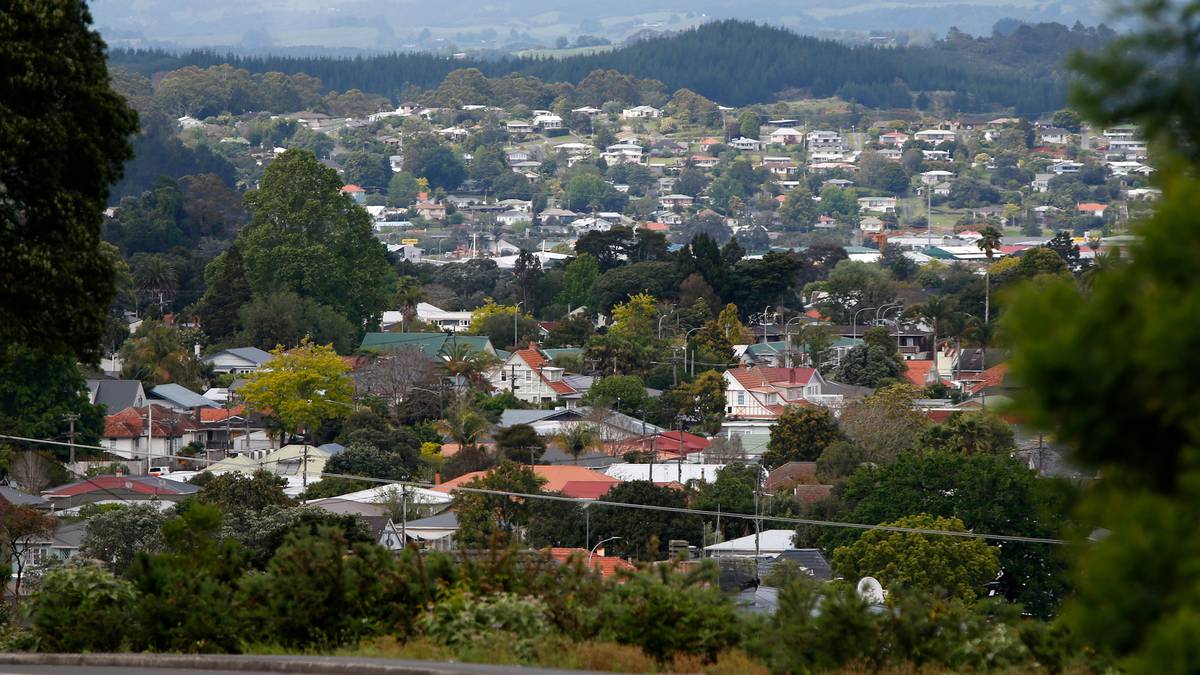Kāinga Ora won’t change its policy of not consulting neighbours on state house tenants in Northland. Photo / Michael Cunningham
Kāinga Ora won’t change its policy of not consulting neighbours on the type of tenants it moves into state houses in Northland.
Northland regional director of Kāinga Ora Jeff Murray said the agency did realise
there were sometimes difficulties between tenants and their neighbours, and said it tried its best to deal with them.
His comments followed demands by residents in a usually quiet Northland street that they be consulted after their claims unruly tenants forced the sale of an adjacent property twice and assaulted a neighbour.
Fortunately for them, the tenants have since vacated the state house, but the long-suffering neighbours are now demanding Kāinga Ora consult them on who its next tenants will be.
A man renting the front property says he’s been through hell the past two years.
But Murray said Kāinga Ora put people in a property or location that was most likely to work.
“People who qualify to live in our homes, we meet with them prior and talk to them about what their needs are and what sort of house would meet their needs.
“We also try and understand any challenges they might have in their life, and then we try to match them to a house in a neighbourhood that’s likely to work for them,” Murray said.
The man renting the front house said his family endured continuous verbal abuse, and he was once assaulted by the occupants of the state house in his driveway, shortly after arriving home from work at about 2am.
“There’s been ongoing issues with drugs, alcohol and violence. I now suffer from post-traumatic stress disorder and am looking at receiving counselling. I sleep two to three hours a day, only.
“Every Friday night there was party followed by fights. I freak out every time I hear a vehicle in my driveway. Now, me and my neighbours want dialogue with Kāinga Ora to voice our concerns and to have an input as to who they allow next into that property, because we all fear for our safety,” he said.
Kāinga Ora said it had received 10 complaints about the previous occupants at that property between 2015 and 2021, all of which were followed up in line with the agency’s policies and processes.
“We acknowledge an outcome may have taken longer than we would have hoped, however, the new tools we introduced earlier this year allow us to respond more effectively to disruptive behaviour,” Murray said.
/cloudfront-ap-southeast-2.images.arcpublishing.com/nzme/6LYM2W3JJRC7WBYAW6NJBXTGJE.jpg)
Photo / Michael Cunningham
On the second or third day after he moved in just under three years ago, the man renting the front property said the Kāinga Ora tenants greeted him, and things seemed quite nice until one day they accused him of ‘narcing’ on them to police.
“I told them my family doesn’t have an interest in what they did. I’ve always had a good rapport with my neighbours, and that’s how I was able to get into a rental property.”
The previous owner of the house the man is renting claimed he was chased by one of the unruly tenants and had his car stolen. He had a number of conversations with Kāinga Ora, but said it wasn’t interested in acting on concerns.
“Our people are screaming out for somewhere to live, and then we get people who take the mickey out of us taxpayers. They were violent, drunkard, disrespectful — all the things that you don’t want in a neighbour.”
Another person who lived there for two years before he sold his house was frustrated at what he called a glaring lack of action by Kāinga Ora.
“No matter what their tenants did, we had no protection from Kāinga Ora. There were parties, drugs and beatings. I couldn’t bring my grandkids here because of the noise and behaviour.”
Kāinga Ora does not have a ‘no evictions’ policy – however, Murray said the vast majority of the time, the Government agency was able to resolve issues or initiate a move for its customers without evicting them.
He said it was important to note eviction was a specific process that involved the Tenancy Tribunal, which occurred only if a person refused to leave the property following the end of a tenancy.
Earlier this year, he said Kāinga Ora made changes to improve its ability to respond to disruptive behaviour, and it has a range of tools in that regard which include supporting relocation through the Residential Tenancies Act (RTA), which provides for additional ways to respond to serious events of disruptive behaviour.
“Neighbours cannot be expected to put up with intolerable situations, and we are committed to responding effectively to disruptive behaviour when it occurs.
“We seek positive outcomes for both the people we house and their communities, working closely with customers and whānau – often alongside specialist agencies – to address what can be complex social needs,” Murray said.
Over the last two years, Kāinga Ora has not evicted any tenants in Northland.
“However, we can and do move people, where necessary. Over the past two years, we have moved 62 customers by agreement. Of these, one was moved due to disruptive behaviour.”
The remaining 61 households moved for a variety of reasons, including changing circumstances (the house had become too big or too small), the house was due for redevelopment, had been fire damaged, or because modifications weren’t possible at the current property.




